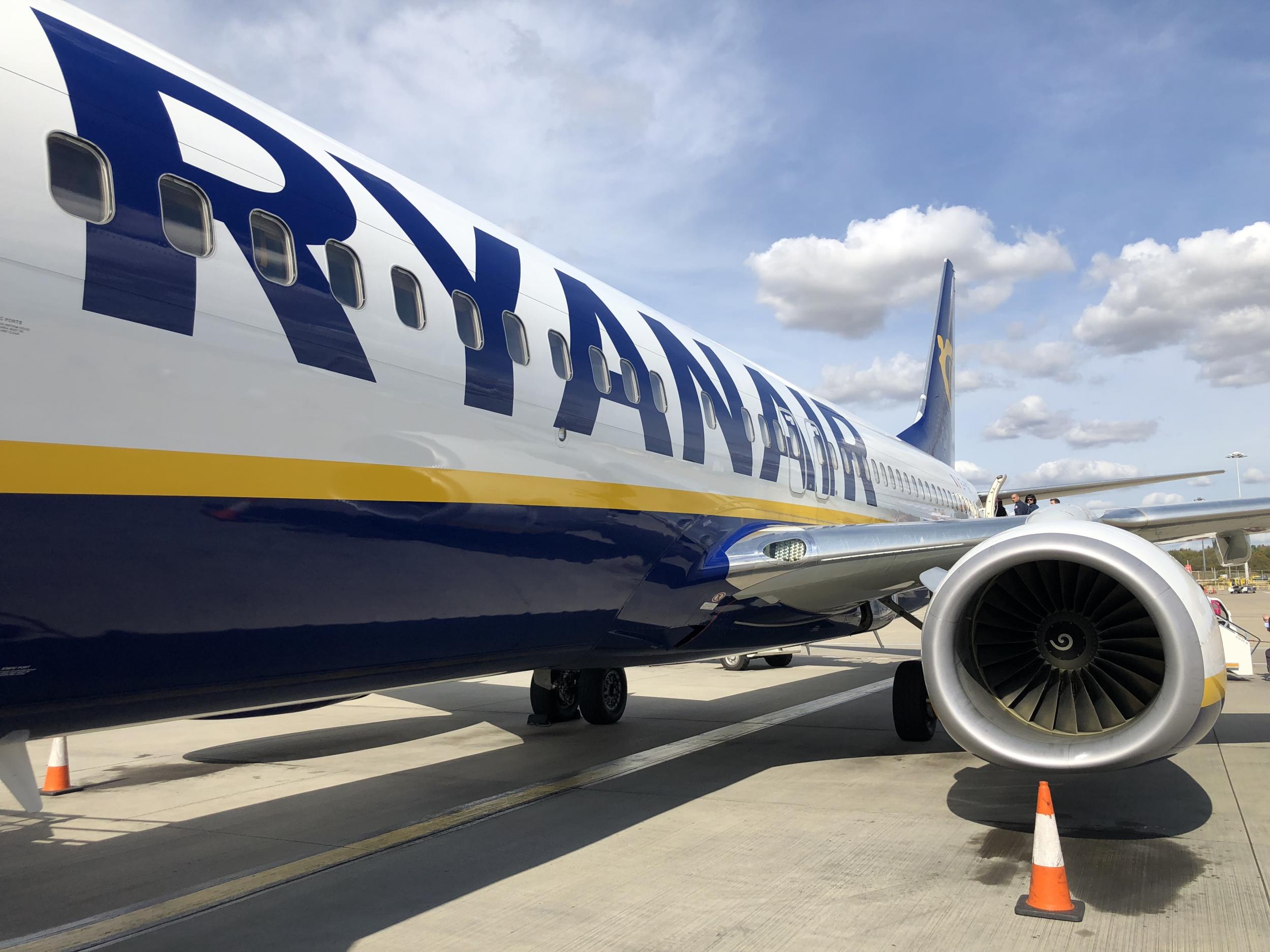Ryanair says its Boeing 737 Max jets will not fly before summer 2020 after two fatal accidents
‘It’s a very safe aircraft,’ said Michael O’Leary, chief executive of Europe’s biggest budget airline

Your support helps us to tell the story
From reproductive rights to climate change to Big Tech, The Independent is on the ground when the story is developing. Whether it's investigating the financials of Elon Musk's pro-Trump PAC or producing our latest documentary, 'The A Word', which shines a light on the American women fighting for reproductive rights, we know how important it is to parse out the facts from the messaging.
At such a critical moment in US history, we need reporters on the ground. Your donation allows us to keep sending journalists to speak to both sides of the story.
The Independent is trusted by Americans across the entire political spectrum. And unlike many other quality news outlets, we choose not to lock Americans out of our reporting and analysis with paywalls. We believe quality journalism should be available to everyone, paid for by those who can afford it.
Your support makes all the difference.Ryanair will not fly the Boeing 737 Max before next summer, the airline’s chief executive has predicted.
Europe’s biggest budget airline has 210 Max aircraft on order in a unique, high-capacity configuration, called the Max 200.
Deliveries were due to begin in April 2019. But the plane has been grounded worldwide since March following two fatal accidents – both blamed on an anti-stall system known as MCAS.
While Boeing has repeatedly insisted that the system will be made safe and the 737 Max will be flying by the end of 2019, Michael O’Leary said his airline will not operate them for a further six months.
He told the BBC Today programme: “Frankly we’ve now accepted they will be delayed beyond next March.
“We now don’t expect to get them until summer next year, and then only 20 of them rather than the original 60 that Boeing had contracted to deliver. It’s a big challenge for us.”
In July it was reported that Ryanair was renaming the Max as the “8200”.
But the Ryanair boss said: “It’s a very safe aircraft, it’s a great aircraft, it has 4 per cent more seats, it operates with 16 per cent less fuel consumption and will enable us to offer lower fares at lower cost than ever.”
Ryanair reported a flat profit for the six months from April to September of €1.15bn (£1bn), on revenue 11 per cent higher at €5.39bn (£4.66bn).
The airline blames “weak consumer demand in the UK and overcapacity in Germany and Austria” for the failure to increase profits.
Ahead of a challenging winter 2019/20 it is predicting a full-year profit in the range of €800m-€900m (£691m-£777m).
Mr O’Leary said that Brexit was depressing fares to and from Britain: “The UK is still flying but we’re seeing lower ticket prices.
“Our fear is that the current election will deliver another hung parliament because fundamentally the UK is split 50-50 on Brexit.”
But he said the collapse of Thomas Cook and two French airlines, Aigle Azur and XL Airways, created more opportunities for Ryanair.
The Austrian subsidiary is expected to break even in 2021.
Overall in the Ryanair group, traffic grew 11 per cent to 86 million passengers, and the revenue per passenger was 1 per cent higher. While fares fell by 5 per cent, “ancillary revenue” – anything from seat assignments to baggage – rose by 16 per cent.
The load factor remains unchanged at 96 per cent, which is one reason Ryanair claims to have the lowest carbon emissions among European airlines.
The carrier claims: “Passengers switching to Ryanair can halve their CO2 emissions compared to some other major EU carriers.”
Anna Hughes, director of Flight Free UK, said: “It’s ironic that Ryanair can make this claim at the same time as being listed among the EU’s top ten polluters – the other nine being coal plants.
“It’s true that, compared to other EU carriers, Ryanair’s emissions per passenger are lower, but this is mainly because Ryanair books to capacity and has no business class.
“The reality is that there’s no such thing as a low-carbon flight, yet there remains a dangerous amount of greenwashing in the industry that leads customers to believe otherwise.”
Join our commenting forum
Join thought-provoking conversations, follow other Independent readers and see their replies
Comments